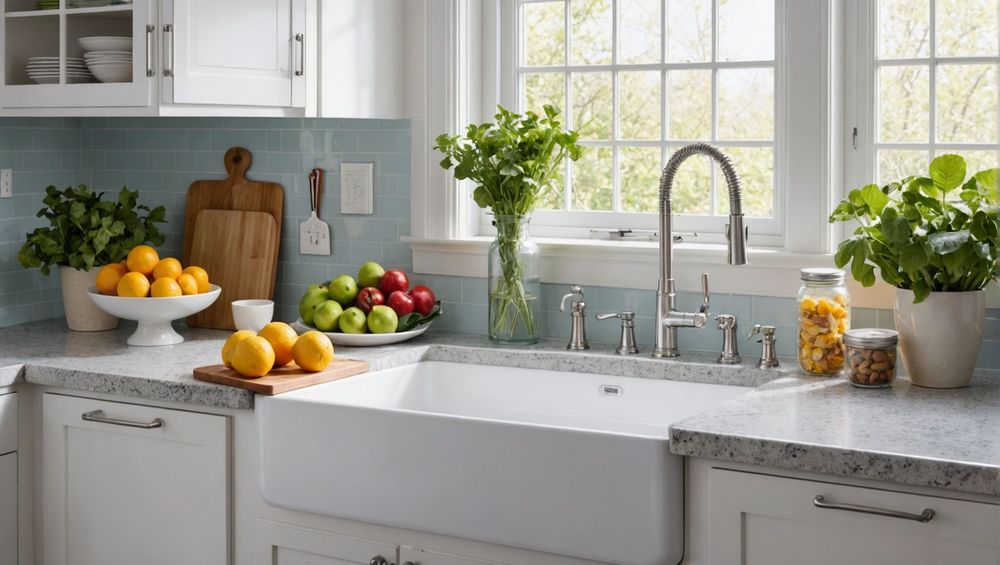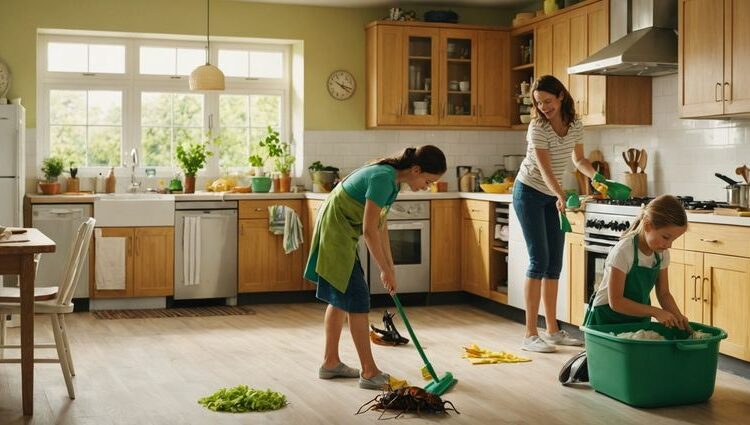Cockroaches in the kitchen can be a frustrating and potentially unhygienic issue. To effectively get rid of these pesky intruders, it’s essential to understand their behavior, identify potential entry points, and implement both preventative measures and elimination strategies. This article explores practical steps you can take to rid your kitchen of cockroaches for good.
Understanding Cockroaches

Cockroaches are resilient pests that thrive in warm, humid environments, making kitchens their ideal habitat. They can enter your home through small cracks, gaps, and even through packages brought in from outside. Understanding their behavior is essential for effective control. For instance, cockroaches are nocturnal and often come out in search of food and water at night. They reproduce rapidly, which means that once you spot one, there could be many more hiding nearby. Their presence not only indicates a cleanliness issue but may also pose health risks by contaminating food and surfaces.
Identifying the Problem Areas

Before taking action, it’s crucial to identify where cockroaches are entering and hiding in your kitchen. They typically seek shelter in dark, damp areas close to food sources. Follow these steps to identify problem areas:
- Inspect food storage: Check pantry items, bags, and containers for signs of infestation.
- Look under appliances: Stoves, refrigerators, and dishwashers are common hiding spots.
- Examine sinks and drains: Dark, moist spaces are attractive to cockroaches.
- Check cracks and crevices: Look around baseboards, walls, and cabinets for gaps.
- Monitor for droppings: Small, dark droppings can indicate roach activity.
Preventive Measures
Prevention is key to keeping your kitchen cockroach-free. By eliminating their food sources and hiding spots, you can make your kitchen less inviting to these pests. Here are some preventive measures to consider:
- Keep food sealed: Store food in airtight containers to limit access.
- Clean regularly: Wipe down surfaces, sweep, and vacuum to remove crumbs and spills.
- Fix leaks: Repair any plumbing leaks to eliminate excess moisture.
- Seal entry points: Use caulk to fill cracks and gaps in walls, floors, and around windows and doors.
- Declutter: Minimize clutter that can provide hiding places for cockroaches.
Elimination Techniques
If cockroaches have already invaded your kitchen, it’s time to implement elimination techniques. Here are effective methods to exterminate them:
- Set traps: Use sticky traps to capture cockroaches and monitor their activity.
- Apply gel bait: Gel baits can attract and poison cockroaches without interfering with food.
- Use insecticides: In severe cases, consider using a professional-grade insecticide, following safety instructions.
- Natural deterrents: Consider using diatomaceous earth or boric acid as a non-toxic option to kill cockroaches.
- Call a pest control professional: If the problem persists, it might be necessary to enlist expert help.
Conclusion
Getting rid of cockroaches in your kitchen requires a combination of understanding their behavior, identifying problem areas, implementing prevention strategies, and using effective elimination methods. Regular maintenance and clean habits can significantly reduce the chances of an infestation. By taking a proactive approach and responding promptly to signs of cockroaches, you can ensure a cleaner, healthier kitchen environment.
FAQs
1. How do I know if I have a cockroach infestation?
Signs of an infestation include sightings of roaches, droppings (small black spots), egg cases, and an unpleasant odor. Regular monitoring can help you catch the problem early.
2. What is the most effective way to eliminate cockroaches?
Combining traps, gel baits, and cleanliness is usually the most effective method. If these fail, professional pest control might be necessary.
3. Are there natural remedies to get rid of cockroaches?
Yes, diatomaceous earth and boric acid are effective natural remedies that can kill cockroaches without harsh chemicals.
4. How can I prevent cockroaches from returning?
Keep your kitchen clean, seal entry points, and store food in airtight containers to prevent their return.
5. Is it safe to use insecticides in the kitchen?
If using insecticides, ensure they are labelled safe for indoor use and keep food and utensils covered during the application process.
